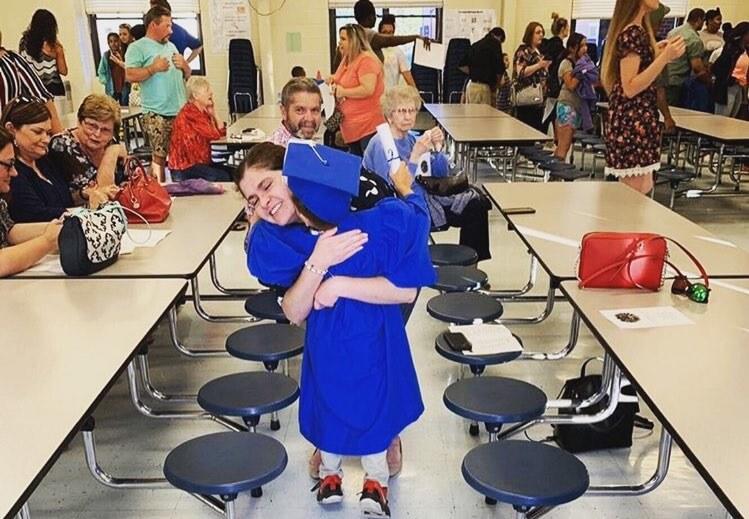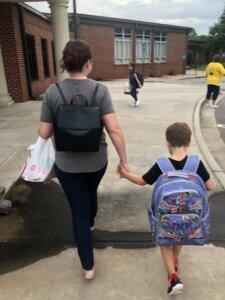
Caption
Rachel Moss hugs her son Jase after his pre-pandemic pre-K graduation. Worries that her son fell behind when COVID-19 disrupted Kindergarten and now first grade have her concerned that sending him to second grade next year will leave him constantly struggling to keep up.
Credit: Photo courtesy of Rachel Moss


